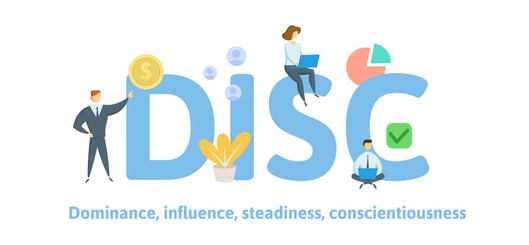
Many of us can remember taking a personality assessment, whether that is in a current position, in a first job - maybe even in college. Personality assessments are typically aimed at identifying strengths and weaknesses. In an educational setting, these assessments may provide the participant with good career matches. In a workplace setting, these assessments can help leadership identify candidate position fit, or overall work team diversity.
In today's fast-paced and collaborative organization environments, understanding individual personalities has become a crucial element for fostering effective teamwork and maximizing organizational success. The most effective personality assessments serve as invaluable tools that offer insights into employees' unique traits, preferences, and behaviors, enabling both individuals and teams to leverage their strengths, navigate challenges, and thrive in their roles. This is great information - but where can it be used in the workplace daily?
- Hiring and Onboarding: during the initial hiring process, we typically rely on traditional interview processes to identify if a candidate is a good fit. However, by leveraging personality assessments, we're able to truly see how a candidate may fit into a working team. It’s been said that diverse working teams are 50% more productive than diverse working teams. Additionally, being able to screen for common risk assessments can greatly contribute to finding the right fit of candidate.
Personality assessments can also be leveraged during onboarding. One of the main purposes of onboarding is to share vital information about the organization so a new hire can be successful in their role, but, as we know, everyone has different priorities and ways of absorbing communication and learning. One way we can leverage personality assessments is to utilize them for more effective communication during onboarding. For instance, individuals with a preference for detailed, analytical communication may appreciate receiving comprehensive instructions and feedback, while those who prefer a more concise, big-picture approach may find lengthy emails overwhelming.
- Check-ins: Check-ins are a significant moment for employees and immediate leadership to make a connection. This is typically a 1:1 time that focuses on the employee sharing likes and dislikes and working on the continuing relationship between the leader and the employee. These conversations can lead down a path of difficult conversation. By having access to an employee’s personality profile, the leader can have better insights on how to prepare for difficult conversations with that employee.
- Career Development: Personality profiles can be used to help identify growth opportunities for employees. This can revolve around weaknesses and thus identifying training opportunities. It can also be used to see where employee’s strengths lie, and leverage this for advancement opportunities and organizational fit.
In essence, incorporating personality assessments into daily workplace practices not only fosters effective teamwork and communication, but also facilitates targeted strategies for employee growth and organizational success. By understanding and embracing the diversity of personalities within their teams, organizations can cultivate environments where individuals thrive and contribute their best towards common goals.
To learn about one personality assessment offered by IMEC, join us in the upcoming webinar hosted by Angelika Nowosadko on March 28th.




